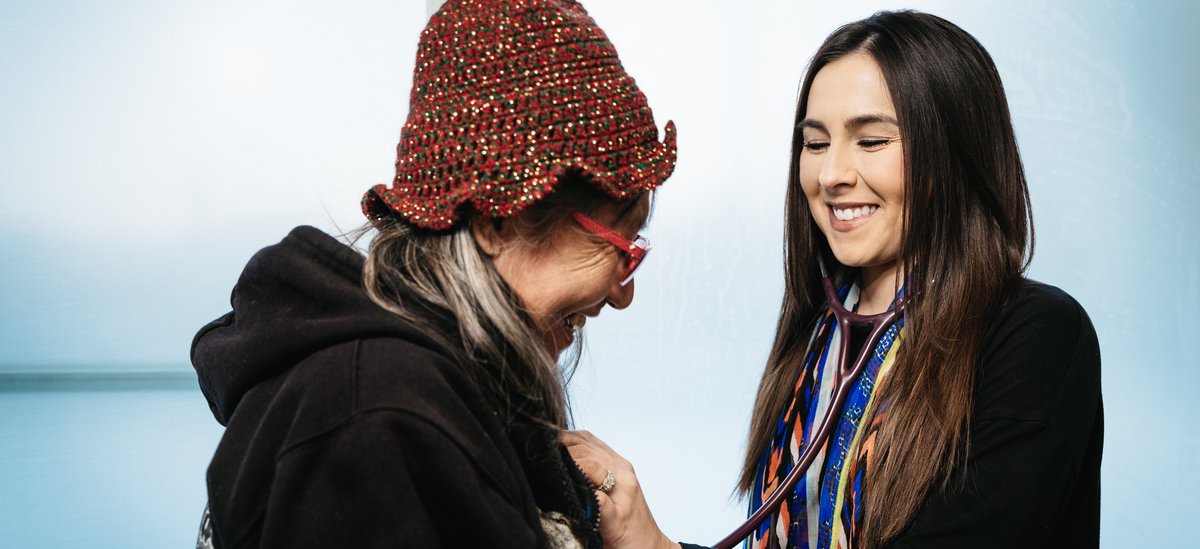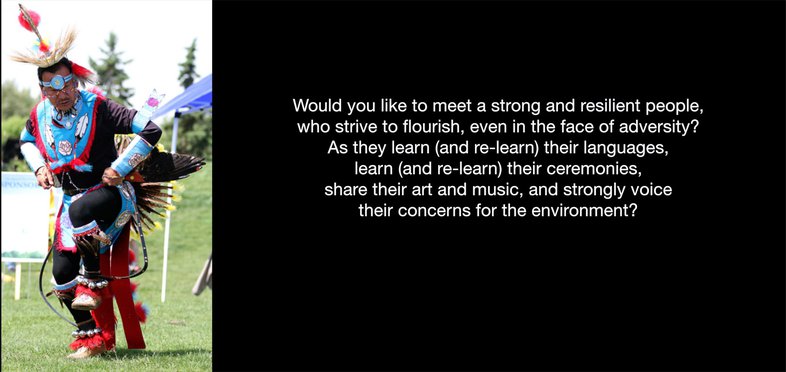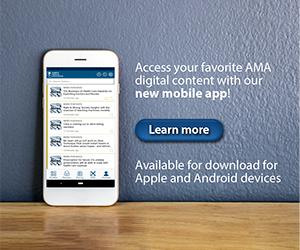Ellen L. Toth, MD
On behalf of the Indigenous Wellness Program Alternate Relationship Plan (IWP ARP) physicians
Since 2010, when Alberta Health Services established the Indigenous Health Program (IHP) and I joined it, I have had the privilege of working with other dedicated colleagues who find professional and personal fulfillment by serving, caring for and providing quality health care to Alberta’s Indigenous peoples, on their reserves.
Half covered, half to go … The north is under-served
In 2014, we started an Alternative Relationship Plan (ARP) with five physicians, sponsored by IHP; we now have 35. Currently, the Indigenous ARP is providing health care services to about half of the 45 federal Indigenous communities in Alberta. In addition, the ARP serves urban Indigenous populations, at the Indigenous Wellness Clinic in Edmonton, and the Elbow River Healing Lodge in Calgary.
It’s a start, but the majority of ARP physicians work in Edmonton or south of Edmonton, with the exceptions of Fort Chipweyan and Saddle Lake. Northern Alberta has the largest number of Indigenous communities and the largest percentage of Indigenous peoples – whether urban, rural or on reserves or Metis Settlements – and yet has almost no physicians practising Indigenous health.
While this physician shortage in the north is not unique to Indigenous communities, experiences gathered by our ARP representatives in the south suggest that practising in the communities can alleviate some of the stresses of emergency and hospital-based care by addressing problems earlier, in a more appropriate and culturally safe manner. The needs of the north are significant! All eight Metis Settlements are in our North Zone, in addition to 24 First Nations’ Communities in Treaty 8.

My story
Think about it. Have you wondered how you could add more meaning to your life, or your career? Would you like to learn more about the history of the country in which you live? Do you know the history of Canada’s Indigenous peoples?
Perhaps you are like me … I know a bit more now than I used to, almost 20 years ago when discussions began in Ottawa about the epidemic of diabetes in Canadian Indigenous peoples.
Out of those discussions in the late 90s came the first version of the Aboriginal Diabetes Initiative and I became involved (updated: Aboriginal Diabetes Initiative Program Framework (2010-2015)). Suddenly I was leaving the hallowed halls of the University of Alberta and the comforts of my southwest Edmonton home, to travel to small towns up north and to Indigenous communities; some bigger and some smaller than the adjacent towns.
And so began my education in the history – no, not the history of Aboriginal diabetes – but the history of subjugation and oppression in Canada (i.e., the history of colonization). The history of the triumph of one society over another, during the process of “settling” this country. I still know very little about it: the first contacts; the fur trade; the forts; the Treaties; the establishment of “reserves.” I ask every chance I get, and I read as many of the resources that are out there as possible.
A key part of my education was the (2008) federal government apology to residential school survivors. More recently (2015), it was the many educational, illuminating and often horrifying reports of the Truth and Reconciliation Commission.
The need to listen
The more I hear and read, the more I recognize the damage in the stories of my patients.
Questions I ask myself:
- “Why will the specialist not see our patient who has already missed three appointments?”
- “Why can we not provide services to the child with cerebral palsy who lives, not only on reserve, but at the end of an impassable road?”
- “Why do Indigenous patients tend to delay seeking medical assistance?”
Where we once were able to provide a level of health care services to these remote and difficult-to-access locations, an increasing tightening of resources in recent years has made it even more difficult. Then there is the question:
Because they often assume it will not be forthcoming! And round and round it goes.
You may know that Indigenous populations/patients have well-documented poorer outcomes on just about every parameter that is reported on (perhaps, except cancer, so far). And you may be aware of this: Indigenous life expectancy rates are 10 years less; infant mortality is three times higher; opiate prescriptions are two-to-three times higher (ditto with benzodiazepines and gabapentin). Then there are the rates of Indigenous childhood obesity; diabetes in pregnancy – I could go on and on – and it is a very long list.
How to stay well with often-unacceptable living conditions?
Along with the cold, hard facts of educational and employment under-achievement, there is the crisis of housing. This is perhaps the consistent thread running through so many of the Indigenous health care crises. Would you not like to take something to help you sleep when you are one of 10 people sharing a two-bedroom house? Can you really be expected to manage your diabetes with an uncertain food supply? Is it any surprise that you cannot get to doctor appointments when there is no vehicle, no phone and no reliable babysitter for your children?
But, I have also discovered this: Even if all these problems and situations were remedied, in many cases there is still no desire or ability to engage with the oppressive nature of the system. There is no trust, and no wish to access the “Medical Home” available to so many of our non-Indigenous patients. Maybe because it’s our home, not theirs.
These past 20 years have changed me, although not fundamentally. At 17, I quit my private high school because I wanted to connect with the real world. Little did I know the shock I would endure, as I emerged from my insular world into some harsh realities. Many years later, I am proud that I haven’t become cynical, and that I’ve retained the ability to be shocked. And, I assure you that the conditions and treatments (or lack thereof) that I see my Indigenous patients continuing to endure are indeed shocking.
Awaken yourself by serving others
Would you like to meet strong and resilient people, who strive to flourish, even in the face of adversity? As they learn (and re-learn) their languages, learn (and re-learn) their ceremonies, share their art and music, and strongly voice their concerns for the environment.
If you are interested in serving Alberta’s Indigenous peoples – meeting, learning from and sharing with them on their reserves and in their communities – contact me (Ellen Toth) at etoth@ualberta.ca or call Wayne Labonte, Primary Care Access Senior Advisor, Indigenous Health Program, AHS, at 780.735.5012.
TRC Calls to Action – 18-24
Four years ago, with its health-related Calls to Action (18-24), the Truth and Reconciliation Commission called our attention to the great need for significant improvements to the provision of health care to Canada’s Indigenous populations.
In my view, the message of the (Health) Calls to Action is clear: It is incumbent upon Canada’s health systems (and the individuals within those systems) to be responsive and mobilize resources to address the distinct needs of Indigenous peoples.
#18 states:
“We call upon the federal, provincial, territorial, and Aboriginal governments to acknowledge that the current state of Aboriginal health in Canada is a direct result of previous Canadian government policies, including residential schools, and to recognize and implement the healthcare rights of Aboriginal people as identified in international law, constitutional law, and under the Treaties.”
#24 states:
“We call upon medical and nursing schools in Canada to require all students to take a course dealing with Aboriginal health issues, including the history and legacy of residential schools, the United Nations Declaration on the Rights of Indigenous Peoples, Treaties and Aboriginal rights, and Indigenous teachings and practices. This will require skills-based training in intercultural competency, conflict resolution, human rights, and anti-racism.”

Why work in Indigenous health?
I asked some of my colleagues in the ARP why they work in Indigenous Health. Here’s what they had to say:
Dr. Janet Tapper, physiatrist, Elbow River Healing Lodge: "My children and husband are Indigenous. I am acutely aware of the systemic injustice in our country. When I hear stories of how our health care system has failed Indigenous people, it sometimes brings me to tears. It terrifies me that this injustice might land on my own family. There is a need for change and I hope I can contribute to that change."
Dr. Sajid Ali, family physician, Maskwacis (Samson Cree Nation): "Working with the Indigenous population as a family physician is a source of honor for me. These are a very refined but marginalized group of peoples in our society. Many unheard stories are embedded among them. I listen, and listen, and listen!”
Dr. Nicole Cardinal, family physician, Saddle Lake Cree Nation: “When my mother delivered one of her children, her physician was intoxicated. He came into the room the next day to apologize. My mom felt upset that the nursing staff/hospital allowed him to work and deliver her child. She felt like because he was the physician she was not able to voice her concern that this upset her. She now reflects on this feeling like she could have legally went after this man and she wishes she was able to speak up”.
“Now I am a physician in my community and I teach medical students Indigenous health as my way of contributing to education about Indigenous peoples. I try to teach about our community, the people, the social determinants of health that affect Indigenous peoples. I try to teach compassion to our students so when they encounter Indigenous patients they have an understanding of our people.”
Dr. Karishma Mehta, Outstanding Family Physician of the Year (patient-nominated, AHS Department of Family Medicine Calgary), Elbow River Healing Lodge and TsuuT’ina Nation: “I recently participated in a “blanket exercise”. It was a very powerful demonstration of the successive waves of repression. I want to be part of the hope in moving forward, to provide a safe place for those for whom "the system" has not been safe."
Dr. Sonya Regher, family physician, TsuuT’ina Nation: “I am a cancer survivor and when I came back, I wanted to do something meaningful.”
Dr. Seth Heckman, family physician, Maskwacis (Samson Cree Nation) OBGYN, “I think the health system is broken; nowhere more-so than on reserve. By fighting on the front lines, I hope to find solutions that will not only help indigenous peoples but also help us all.”
Dr. Esther Tailfeathers, family physician, Blood Tribe; medical director Indigenous Health SCN: "I had wanted to be a doctor since I was a 16-year-old Candy Striper. After witnessing the birth of a baby, the high school counsellor told me right off, when I expressed interest in going to med school, that I didn't have the ability to do it and that I should consider nursing or teaching. I half-believed him and really didn't believe I could, until my younger brother did go to med school. His premature death gave me the courage to try. I'm so glad I did; I am grateful to so many people for helping me along the way. Here I am, helping the community, applying my education to help my community to find solutions to health problems, helping other First Nations communities to find strategies to their health problems."
(June, 2019 – Winner of the Dr. Thomas Dignan Indigenous Health Award, Royal College of Physicians and Surgeons of Canada)
Dr. Matt Ray, family physician, Sikisika Nation and Elbow River Healing Lodge: "I was interested in International Health but clearly this is a population with similar needs. I think the culture is sophisticated and under-appreciated, and I feel lucky to be able to be an ally in the path to reconciliation …"
Dr. Alexandra Seal Grant, family physician, Bigstone Cree Nation: "In medical school, I worked with some preceptors who had negative attitudes about Indigenous patients. Their attitudes had a noticeable impact on communication and quality of care. I thought that I could do better."
References available upon request.
